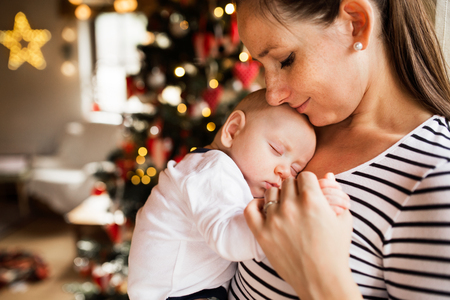Understanding Holiday Stress and Family Dynamics
The holiday season is supposed to be the most wonderful time of the year, but for many American families, it often brings a unique kind of stress. As a dad, I’ve noticed that expectations—both spoken and unspoken—tend to skyrocket around Thanksgiving and Christmas. Whether it’s hosting the perfect dinner, finding just the right gifts, or making sure everyone feels included, there’s a lot of pressure to create memorable moments. Add in travel plans, family reunions, and different personalities coming together under one roof, and you’ve got a recipe for tension. A big source of stress comes from trying to balance old traditions with new realities, like blended families or changing financial situations. It’s easy for emotions to run high when everyone wants things to go “just right.” Understanding where this pressure comes from—and why we all feel it—can help us approach the holidays with more patience and maybe even a bit more humor.
2. Setting Realistic Expectations with Loved Ones
The holidays are meant to bring families together, but let’s be honest—everyone has different ideas of what that should look like. As a dad who’s been through more than a few holiday seasons, I’ve learned the hard way that open and honest communication with family is the best gift you can give yourself. Start early by having conversations about what everyone hopes for during the holidays. Is grandma expecting a big sit-down dinner? Do your teenagers just want to chill in their rooms? Maybe you’d rather keep things low-key this year. No one can read minds, so lay it all out on the table.
Practical Tips for Open Communication
- Schedule a Family Meeting: Pick a time when everyone can share their thoughts and wishes for the holidays.
- Use “I” Statements: Express how you feel without blaming others. For example, “I feel overwhelmed when we try to do too much in one day.”
- Be Honest About Your Limits: Let your loved ones know what you realistically can and cannot do, whether it’s hosting, traveling, or buying gifts.
- Agree on Boundaries: If certain topics or traditions cause stress, agree as a family to skip or modify them.
Holiday Planning Table: Who Does What?
| Activity | Who’s Responsible? | Notes/Boundaries |
|---|---|---|
| Dinner Prep | Mom & Dad | No elaborate dishes; keep it simple |
| Gift Exchange | All Family Members | $25 limit per gift |
| House Decorating | Younger Kids | Only common areas—no bedrooms |
| Holiday Outing | Whole Family | One outing only, no back-to-back events |
If someone seems disappointed by your decisions, acknowledge their feelings but stick to what works best for your household. It’s okay if you don’t please everyone—what matters most is that your family feels heard and respected. By setting realistic expectations up front, you’ll save yourself a lot of stress and make room for genuine holiday joy.

3. Prioritizing and Delegating Holiday Responsibilities
One of the best ways to manage holiday stress is to realize that you don’t have to do everything yourself. As a dad, I’ve learned that trying to juggle every single responsibility—shopping, cooking, decorating, organizing activities—only leads to burnout and frustration for everyone. Instead, it’s important to prioritize what truly matters most to your family during the season. Sit down together and decide which traditions or events are must-do’s, and which ones you can skip or simplify this year.
Share the Load with Your Family
The holidays are about coming together, so get everyone involved! Assign age-appropriate tasks to each family member. Maybe your partner enjoys baking while the kids can help decorate cookies or wrap presents. Even younger children love feeling included when they’re asked to put ornaments on the tree or help set the table. Don’t be afraid to delegate bigger responsibilities too, like having teens plan a family movie night or letting relatives bring dishes for potluck dinners.
Make a Holiday Task List
Creating a checklist of all your holiday responsibilities helps make things more manageable. Write down everything from gift shopping and meal planning to sending out cards. Then, go through the list as a family and assign who will take care of what. This not only lightens your load but also gives everyone a sense of ownership in making the holidays special.
Keep Communication Open
Remember, it’s okay if things aren’t perfect. Be honest with your family about what you can realistically handle, and encourage others to speak up if they’re feeling overwhelmed too. Working together as a team makes holiday preparations less stressful and way more fun—and it teaches kids valuable lessons about responsibility and cooperation along the way.
4. Making Time for Self-Care
As a dad, I know it’s easy to get caught up in the whirlwind of holiday planning and family obligations. But if there’s one thing I’ve learned, it’s that making time for self-care isn’t selfish—it’s essential. The holidays can be a marathon, not a sprint, so carving out moments for personal downtime is crucial to keep your energy and spirits up. Even when your schedule feels packed with activities, setting aside just a little time for yourself each day can make all the difference.
First, recognize that you don’t have to do it all. It’s okay to say no to an extra commitment or delegate tasks to other family members. Block out short periods during your day—even just 10-15 minutes—to step away and recharge. Whether that means taking a quiet walk around the block, sneaking in a quick nap, or enjoying your favorite cup of coffee in peace, these small breaks help you reset and stay positive.
Here’s a practical way to build self-care into your busy holiday routine:
| Time of Day | Self-Care Ideas |
|---|---|
| Morning | Wake up 15 minutes early for some deep breathing or stretching |
| Afternoon | Take a brisk walk or listen to music you love |
| Evening | Read a chapter of a book or take a warm shower before bed |
Remember, when you make self-care a priority, you set a healthy example for your family too. Let your kids see that taking care of yourself is part of managing stress and expectations—especially during the holidays. This not only helps you stay grounded but also keeps the overall mood at home more relaxed and joyful.
5. Navigating Family Traditions and Embracing Flexibility
As a dad, I know just how much we treasure those holiday rituals—whether it’s hanging stockings on Christmas Eve, lighting the menorah together, or making grandma’s secret pie recipe. These traditions create lasting memories for our kids and give everyone something to look forward to each year. But life changes: families grow, new in-laws join the mix, and sometimes schedules just don’t align. The key is finding a balance between honoring what matters most and being open to change.
Communicate Early and Often
If you sense family dynamics are shifting—maybe your adult kids have their own families now or someone is celebrating holidays with another side of the family—start the conversation early. Ask what traditions mean the most to everyone, and listen to their input. It might be that some can be kept as they are, while others get a creative twist.
Create New Memories Together
It’s okay if things don’t look exactly like they did when you were growing up. Invite everyone to contribute ideas for new ways to celebrate—maybe a pancake breakfast instead of a formal dinner, or a movie night in pajamas after opening gifts. When family members feel included in shaping traditions, it takes the pressure off and builds new connections.
Be Flexible When Life Happens
Sometimes travel plans fall through or someone gets sick. Instead of stressing about making everything perfect, remind yourself (and your kids) that what matters most is spending time together—even if that means celebrating on a different day or over Zoom. Flexibility shows your children that family isn’t about a checklist; it’s about love and support.
Encourage Understanding
If you’re blending families or welcoming new members, remember that everyone brings their own expectations and customs. Take time to learn about each other’s backgrounds, and find ways to blend meaningful elements from both sides. This not only reduces stress but also enriches your family’s holiday experience.
Finding the sweet spot between tradition and flexibility takes patience and open-mindedness. But by focusing on togetherness rather than perfection, you’ll help your family enjoy more meaningful—and less stressful—holidays, no matter how things change.
6. Handling Disagreements and Promoting Peace
Let’s be honest—no matter how much we love our families, holiday gatherings can sometimes get a little heated. Differences in opinions, old grudges, or just the stress of the season can lead to disagreements. As a dad who’s seen his share of lively debates around the dinner table, I’ve learned that managing these moments with grace is key to keeping the holidays joyful.
Strategies for Defusing Conflicts
First off, if you sense a disagreement brewing, try to stay calm and don’t take sides too quickly. Take a deep breath before responding and remember that everyone’s emotions can run high during the holidays. If things are getting tense, it’s okay to suggest a quick break—maybe offer to refill drinks or start up a fun game with the kids to redirect everyone’s energy.
Addressing Disagreements Calmly
When disagreements do happen, focus on listening more than talking. Let each person share their point of view without jumping in right away. Use phrases like “I see where you’re coming from” or “Let’s try to understand each other.” This shows respect and helps cool things down. If needed, gently remind everyone that the goal is to enjoy each other’s company, not win an argument.
Keeping the Focus on Togetherness and Gratitude
The holidays are really about being together and appreciating what we have. When conversations start to drift toward conflict, bring things back to gratitude. Share a family story, talk about favorite memories, or go around the table saying what you’re thankful for this year. These small reminders can shift the mood and help everyone reconnect with what truly matters.
At the end of the day, no family is perfect—and that’s okay! By handling disagreements calmly and keeping the focus on togetherness and gratitude, you set the tone for a peaceful holiday season that everyone will remember fondly.

